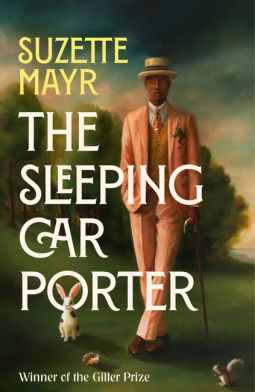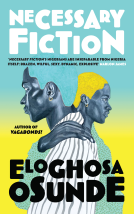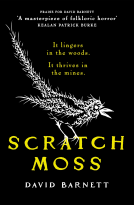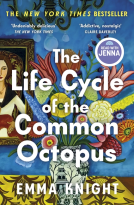
The Sleeping Car Porter
by Suzette Mayr
This title was previously available on NetGalley and is now archived.
Send NetGalley books directly to your Kindle or Kindle app
1
To read on a Kindle or Kindle app, please add kindle@netgalley.com as an approved email address to receive files in your Amazon account. Click here for step-by-step instructions.
2
Also find your Kindle email address within your Amazon account, and enter it here.
Pub Date 18 May 2023 | Archive Date 18 May 2023
Talking about this book? Use #TheSleepingCarPorter #NetGalley. More hashtag tips!
Description
WINNER OF THE 2022 SCOTIABANK GILLER PRIZE
PUBLISHERS WEEKLY TOP 20 LITERARY FICTION BOOKS OF 2022
OPRAH DAILY: BOOKS TO READ BY THE FIRE?
When a mudslide strands a train, Baxter, a queer Black sleeping car porter, must contend with the perils of white passengers, ghosts, and his secret love affair
Baxter's name isn't George. But it's 1929, and Baxter is lucky enough, as a Black man, to have a job as a sleeping car porter on a train that crisscrosses the country. So when the passengers call him George, he has to just smile and nod and act invisible. What he really wants is to go to dentistry school, but he'll have to save up a lot of nickel and dime tips to get there, so he puts up with "George."
On this particular trip out west, the passengers are more unruly than usual, especially when the train is stalled for two extra days; their secrets start to leak out and blur with the sleep-deprivation hallucinations Baxter is having. When he finds a naughty postcard of two queer men, Baxter's memories and longings are reawakened; keeping it puts his job in peril, but he can't part with the postcard or his thoughts of Edwin Drew, Porter Instructor.
Available Editions
| EDITION | Hardcover |
| ISBN | 9780349703909 |
| PRICE | £16.99 (GBP) |
| PAGES | 224 |
Available on NetGalley
Average rating from 22 members
Featured Reviews
The Sleeping Car Porter is a historical novel set in 1929 about a gay Black sleeping car porter. Baxter works on the cross-country train in Canada as a porter whilst he saves enough money for dentistry school. He relies on the tips from white passengers, who he must appease whatever they want, whilst trying to work with the sleep deprivation that comes as part of the porter job. When a mudslide strands the train, the drama of the passengers and of the postcard of two men that Baxter found on the train and has been storing in his pocket will come to a head.
This is a novel that can be slow to get going and it takes a moment to get into the style of the book, especially as it opens on a different train to the main narrative is going to be set on. At first, I wasn't sure if I would like the book, as I was interested by the blurb and the specific historical moment in terms of the porters, race, and sexuality, but the book didn't seem to live up to it. However, as the book progressed, and particularly as you got to know both Baxter and the other passengers on the train more, it became more gripping, with the passengers' dramas providing low level intrigue alongside the stresses of Baxter's situation: needing to make enough money, fear of being fired or being imprisoned, and lack of sleep causing hallucinations.
The insight into the world of railway porters at this time (and after the novel ends there's a list of references showing the research that went into the novel) is fascinating, particularly their labour conditions and the unpredictability of not knowing what the passengers might report them for, all whilst hardly able to get any sleep for days. For Baxter, dealing not only with the work and the power of the white passengers over him, but also having to hide his sexuality at all costs, you see how precarious his existence is. The ridiculousness of the spiritualist character and the seances provides a different tone to the serious despair of Baxter's existence, showing the disconnect between the well-off passengers and the porters.
The Sleeping Car Porter wasn't a book I got into immediately, but by the end I was invested in the narrative and the claustrophobic world you get to see on the train. It's a fairly short book, not packed with endless detail like some historical novels, and brings Black queer history to the forefront to tell the story of a man trying to make it to his dream.
 Ruth F, Reviewer
Ruth F, Reviewer
This was an absolutely fantastic book. I was captured by the development of the story, and the individual characterisations of all the people, even those who appeared only briefly, were incredibly well-done.
However what really stood out for me was the amazing prose style. Mayr's writing grabbed me and kept me fixed reading with barely a breathe in-between. The situation of the train, the movement and stillness, had a particular rhythm that worked really well, while Baxter's extreme exhaustion was so fantastically realised that I felt everything through the page, and could not stop thinking about him long after I closed the book.
I really appreciated the bibliography at the end too and have added a lot of the books to my TBR!
A real tour-de-force and I will be recommending it to everyone!
*Thank you to NetGalley and the publisher for the free ARC*
 Viv R, Reviewer
Viv R, Reviewer
This was an excellent read! Unsure at first I quickly became hooked as the writing style carried me forward in the manner of the train itself. Thorough research by the author meant that the sights, sounds and conditions on the train were totally evocative. The idea of a revenant aboard the train enhanced the sheer exhaustion of Baxter and the tension surrounding his homosexuality.
 Abigail N, Reviewer
Abigail N, Reviewer
Mentioned on twitter:
https://twitter.com/NussbaumAbigail/status/1638309914140352513
Which also recommended the book to Eve Tushnet:
https://twitter.com/evetushnet/status/1648125371328659456
 Sue B, Reviewer
Sue B, Reviewer
The title pretty much gives the subject of the book away.....Baxter is a Sleeping Car Porter. On this relentless train journey to Vancouver, Baxter takes care of his passengers' every needs, desperately adhering to the rules in the Sleeping Car Porter's Handbook, trying to avoid any demerits - enough of which would leave him fired and out on the street. Trying to stay awake on miniscule amounts of sleep and perfectly perform his tasks on the little food he can afford, he is saving every cent so he can go to dentistry school. As the train makes the journey, Baxter, light headed with lack of sleep, hallucinates his way through his tasks, often with Esme, a very young motherless girl passenger clinging to him while her grieving Grandmother tries to sleep and adapt to the loss of her daughter. A novel of daily grind, exhaustion and fear of repercussion, this is the tale of a young black man with a passion for molars, misaligned teeth, extractions all things orthodontic, determined to follow his dream while harbouring a (very necessarily) secret desire for another man - and dealing with the extraordinary encounters produced by both his charges and his sleep deprived brain. Edgy and entertaining.
 Reviewer 876149
Reviewer 876149
It’s Canada, 1929, Baxter’s employed as a sleeping-car porter on long-distance trains but he dreams of becoming a dentist. In his all-too-brief breaks he reads snatches of science fiction, visions of a world beyond this one. Recruited from the Caribbean like so many others, his feelings of dislocation are intensified by his position as both Black and gay. Suzette Mayr’s novel was inspired by her desire to recreate lost queer and Black histories and unearth neglected chapters of Canada’s past. Her narrative is a meticulous recreation of the lives of the countless Black porters who laboured under a painfully exploitative system founded on fear, leaving them dependent on the whims of their mostly wealthy, mostly white passengers. Baxter’s job is modelled on America’s Pullman porters, referred to as “George’s boys” after Pullman himself, many also routinely addressed as “George” a means of robbing them of any sense of their individuality or humanity: expected to endure humiliations, and maintain levels of servility, reminiscent of slavery.
Mayr’s book’s based on years of research and Baxter’s a convincing creation. I found the story most impressive when it focused solely on him: perpetually exhausted, he hallucinates from lack of sleep, while the train company’s refusal to provide for porters means he can barely afford to eat on board the train. There are some marvellous stretches of breathless, vivid prose which echo the relentless pace of Baxter’s duties, the sheer exhaustion of complying with punitive regulations and catering to his passengers’ seemingly ceaseless demands. But there were also sections I found less compelling, particularly the interactions between passengers after Baxter’s train is massively delayed by a landslide. It sometimes felt as if Mayr had taken what could have been devastatingly powerful as a short story and unnecessarily stretched it out. I also found aspects of Baxter’s ongoing fascination with dentistry and teeth a little tiring. Although, I also enjoyed elements of Mayr’s attention to detail: Baxter’s strange ‘figments’ glimpsed after days without solid sleep, which he interprets by referring back to popular magazines of the era like Weird Tales.
 Emily M, Reviewer
Emily M, Reviewer
At the one-quarter mark, I was thinking this was a well-written, if plotless, character study; by the two-thirds point I was thinking that after all it had a surprising and interesting plot. And at the end it was somewhere in between.
It's fair to say this is a book with two different things going on.
On the one hand we have a historical novel about Baxter, a lonely young man, a Caribbean immigrant in Canada working the dehumanizing gig as a train porter, turning down beds for the super-wealthy on cross-country trains. It’s the 1920s and he’s poor, scrimping, and closeted (there’s no other choice) on a five-day Montreal-Vancouver run. His challenges are to save up the remaining hundred dollars he needs for dentistry school, not get fired, not die of sleep deprivation, finish his latest science fiction read, and keep some strange visions at bay.
In the later stages, we have an ensemble piece with the intersecting stories of many different train passengers as they remain trapped by a mudslide in a mountain path. Some of those visions of Baxter’s start to take on new meanings…
So on the one hand this is a conventional novel exploring themes of racism, classicism and homophobia. On the other, it is a potentially <i>Murder on the Orient Express</i> experience with, potentially, ghosts. I say potentially because this only gets off the ground in a slanting way, with plausible deniability at all times. I personally would have been delighted with slightly more of this, but Baxter is a well-drawn character and I was happy enough to go along with him and root for him. And it helped that the writing was strong and a pleasure to read.
The ending was a slight disappointment; a little too tidy. I was invested in Baxter's future happiness and so, it seems, was the author. I wasn’t altogether convinced by how things came together. I felt satisfied as a reader… but my inner critic cried foul. But why shouldn’t we have happy endings? I knocked my inner critic over the head and stuffed her under a sleeping berth on the train. But I suspect she may be haunting the Vancouver-Montreal line still.
Readers who liked this book also liked:
Julie Owen Moylan
General Fiction (Adult), Historical Fiction, Women's Fiction
Rick Riordan; Mark Oshiro
Children's Fiction, LGBTQIA, Teens & YA
Emma Knight
General Fiction (Adult), New Adult, Women's Fiction


















